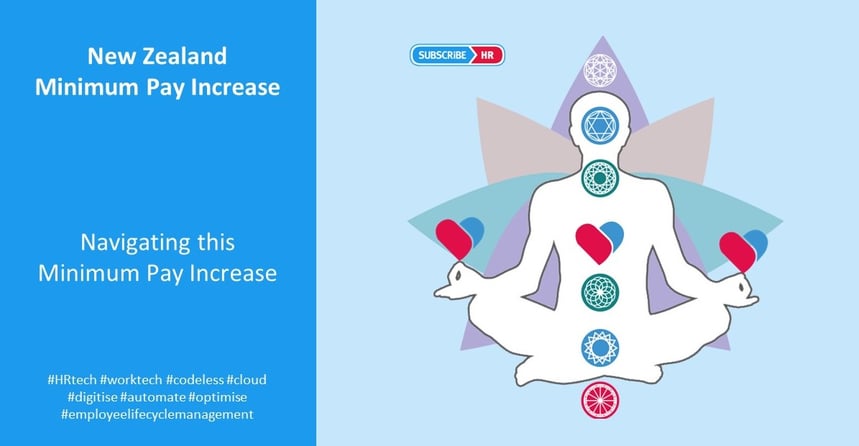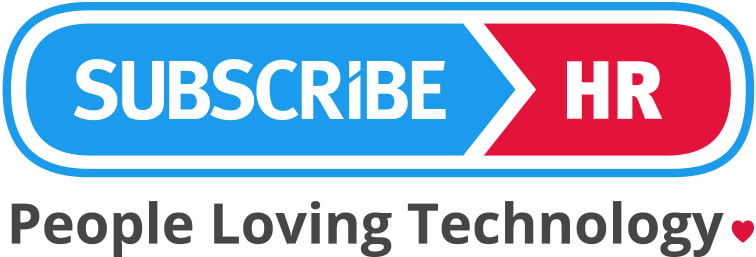As an employer, understanding the intricacies of the New Zealand minimum wage increase is crucial for complying with employment standards and ensuring fair compensation for your employees.
In this comprehensive guide, we will provide an overview of the minimum wage in NZ, discuss recent changes, explore future projections, and offer practical advice on how to plan for upcoming increases. Let’s dive right in ⬇️

Understanding the NZ Minimum Wage Increase
The minimum wage is the legal minimum hourly rate that employers must pay to employees. It plays a significant role in ensuring fair compensation and supporting workers' livelihoods.
In New Zealand, the minimum wage has a rich history of changes aimed at aligning wages with the cost of living and addressing income inequality.
Overview of the Minimum Wage in NZ
The minimum wage in New Zealand serves as the legally mandated minimum hourly rate that employers must pay to their employees. It holds huge significance in ensuring fair compensation and supporting the livelihoods of workers across the country.
Over the years, the minimum wage in New Zealand has undergone several changes, with adjustments made to align wages with the cost of living and address income inequality.
These changes reflect the government's commitment to protecting workers' rights and promoting a fair and equitable society. Understanding the history of minimum wage changes in New Zealand provides valuable context for comprehending the current and future landscape of minimum wage regulations in the country. 👍
Current Minimum Wage and Recent Changes
As of the 1st of April 2023, the minimum wage in New Zealand stands at NZ$22.70 per hour. However, there may be variations in the minimum wage for different employee categories, such as adult workers, starting-out workers, and trainees.
The adult minimum wage has been raised from NZ$21.20 to NZ$22.70 per hour. Additionally, the starting-out and training minimum wage rates have increased from NZ$16.96 to NZ$18.16 per hour.
To ensure that the minimum wage remains fair and aligned with economic factors, the New Zealand government conducts an annual review process. During this review, various factors are taken into account, including inflation, productivity growth, GDP growth, and social considerations.
➡️ Recent adjustments to the minimum wage have been made to address income inequality and improve the standard of living for workers. These adjustments typically result in an increase in the minimum wage rate.
The Next Minimum Wage Increase in NZ
Looking ahead, economists predict a gradual increase in the minimum wage in New Zealand over the coming years. This upward trajectory is aimed at keeping up with inflation and the rising cost of living, ensuring that workers can maintain a decent standard of living.
In addition to gradual increases, some experts anticipate a potential acceleration in minimum wage growth. This acceleration would address income inequality and strive to improve the overall standard of living for workers.
The aim is to bridge the gap between the minimum wage and the concept of a living wage, which ensures that workers earn enough to cover their basic needs and participate fully in society.
Government Policies
Projections indicate that government policies and social movements advocating for higher wages could exert pressure to accelerate minimum wage growth in New Zealand. 💵
Ongoing discussions and debates surrounding income inequality and poverty alleviation will continue to shape the future direction of the minimum wage. These conversations involve considering the needs of workers while taking into account the economic realities of businesses.
Economic Factors
It's worth noting that global economic trends can also influence minimum wage policies in NZ. Changes in trade dynamics and global wage movements may have an impact on the direction of minimum wage adjustments.
As the global economic landscape evolves, policymakers must consider these factors to ensure that minimum wage policies remain fair and equitable.
Social considerations such as income inequality, the cost of living, social movements, and public sentiment all play a role in shaping policymakers' decisions on minimum wage adjustments. The aim is to create a fair wage distribution that aligns with public sentiment and ensures workers' well-being.

Living Wage vs. Minimum Wage in NZ
The Living Wage
Calculation
The living wage is calculated based on the income necessary to provide workers and their families with a decent standard of living. It takes into account essential needs such as housing, food, transportation, healthcare, and education. The calculation considers the specific costs associated with these necessities to determine a living wage rate.
Higher Threshold
The living wage is typically set above the minimum wage. Its purpose is to ensure that workers earn enough to meet their basic needs and fully participate in society. Because it provides a higher threshold, the living wage acknowledges that the minimum wage may not be sufficient to cover all the essential expenses required for a decent standard of living.
Voluntary
Unlike the minimum wage, the living wage is not mandated by law. Instead, it is advocated for by civil society groups, unions, and employers who voluntarily choose to pay their workers a higher wage. Organisations committed to fair compensation and social responsibility may adopt the living wage as a way to support their employees' well-being.
Localised
The living wage can vary depending on the region or city. It takes into account the specific cost of living in a particular area, recognizing that expenses may differ across regions. The living wage is often adjusted to reflect the local economic conditions and ensure that workers in different locations can meet their basic needs.
The Minimum Wage
Legislation
The minimum wage is the legal minimum amount that employers must pay workers for their labour. It is established through government legislation and serves as a baseline for wages to prevent workers from being exploited. Thefore it serves as vital protection ensuring that workers receive a minimum level of compensation for their work.
Basic Standard
The minimum wage sets a standard that employers must meet to provide a basic level of income to their employees. It helps to prevent exploitation and establishes a foundation for fair compensation in the workforce.
Legally Binding
Unlike the living wage, the minimum wage is mandated by law. Employers are required to comply with the minimum wage rates set by the government. This ensures that workers receive at least the minimum wage and protects them from being paid unreasonably low wages.
Uniform Application
The minimum wage is typically applied uniformly across industries and regions within a country. Regardless of the specific circumstances or cost of living in different areas, the minimum wage provides a consistent standard for employers to follow.

How to Plan for NZ Minimum Wage Increase as an Employer
Preparing for the upcoming minimum wage increase in New Zealand requires careful planning and proactive measures ⬇️
Assess Current Pay Structures
Start by evaluating your current wage rates and identify employees who will be affected by the minimum wage increase. This assessment will help you determine the scope and impact of the changes on your workforce.
Budgeting and Cost Management
Analyse the financial impact of the wage increase and develop strategies to manage the additional costs. This may involve reviewing your budget, identifying areas for cost savings, or exploring potential revenue-generating opportunities to offset the increased labour expenses.
Strategic Workforce Planning
Consider the potential implications on staffing levels, productivity, and overall business operations. Assess whether any adjustments need to be made to ensure your workforce remains efficient and capable of meeting business objectives while complying with the new minimum wage requirements.
Review Compensation Policies
Ensure that the minimum wage increase aligns with your organisation's compensation policies. Make any necessary adjustments to ensure consistency and fairness across your workforce. This may involve revisiting your salary scales, bonus structures, or any other forms of compensation that may be affected by the minimum wage changes.
Understand Minimum Employment Standards
Familiarise yourself with the legal requirements and minimum employment standards set by relevant authorities. Stay informed about any additional obligations or regulations related to the minimum wage increase that you need to comply with as an employer.
Review Employment Contracts
Review your employment contracts and update them to reflect the new minimum wage requirements. Ensure that all employment agreements accurately reflect the revised wage rates and any associated terms and conditions.
Maintain Accurate Records
Keep detailed records of employee wages, hours worked, and any adjustments made due to the minimum wage increase. Accurate record-keeping is essential for compliance purposes and will help you monitor and track the impact of the changes on your payroll.
Seek Legal Guidance
If necessary, consult with legal professionals or employment advisors to ensure compliance with the regulations. They can provide valuable insights and guidance on specific legal requirements and help you navigate any complexities associated with the minimum wage increase.
Inform Employees in Advance
Notify your employees about the upcoming minimum wage increase well in advance to manage expectations. Transparent communication is key to ensuring a smooth transition and maintaining employee trust. Clearly explain the reasons for the wage increase and how it aligns with legal requirements and industry standards.
Clear and Transparent Communication
Maintain clear and transparent communication throughout the process. Address any concerns or questions from employees regarding the wage increase promptly and provide HR professionals with guidance on how to handle employee inquiries.
Training for HR Professionals
Equip your HR professionals with the necessary knowledge and resources to effectively communicate and support employees during the transition. Provide them with training on minimum wage changes, compliance requirements, and strategies for managing employee expectations and concerns.


